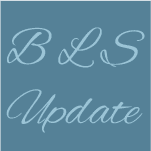
Individual Taxpayer Provisions of the Keeping Workers Paid and Employed, Health Care System Enhancement and Economic Stabilization Section – What You Need to Know Now
We usually don’t see two major pieces of tax legislation in one year, let alone in a two-week span, but these are extraordinary times. As Congress finalizes legislation for the Coronavirus Aid, Relief, and Economic Security Act (the CARES Act) with a price tag of $2 trillion, here are highlights of the individual taxpayer provisions related to the Keeping Workers Paid and Employed, Health Care System Enhancement and Economic Stabilization section that you need to know now. Please let me stress that the devil is in the detail and this is a summary of highlights which does not cover everything the Act covers. As always, be sure to speak with your BLS Team Member with any questions.
2020 Recovery Rebates for Individuals
All U.S. residents with adjusted gross income up to $75,000 ($150,000 married), who are not a dependent of another taxpayer and have a work eligible social security number, are eligible for the full $1,200 ($2,400 married) rebate. In addition, they are eligible for an additional $500 per child. This is true even for those who have no income, as well as those whose income comes entirely from non-taxable means-tested benefit programs, such as SSI benefits.
For the vast majority of Americans, no action on their part will be required in order to receive a rebate check as IRS will use a taxpayer’s 2019 tax return if filed, or in the alternative their 2018 return. This includes many low-income individuals who file a tax return in order to take advantage of the refundable Earned Income Tax Credit and Child Tax Credit. The rebate amount is reduced by $5 for each $100 that a taxpayer’s income exceeds the phase-out threshold. The amount is completely phased-out for single filers with incomes exceeding $99,000, $146,500 for head of household filers with one child, and $198,000 for joint filers with no children.
Special Rules for Use of Retirement Funds
The provision waives the 10-percent early withdrawal penalty for distributions up to $100,000 from qualified retirement accounts for coronavirus-related purposes made on or after January 1, 2020. In addition, income attributable to such distributions would be subject to tax over three years, and the taxpayer may recontribute the funds to an eligible retirement plan within three years without regard to that year’s cap on contributions. Further, the provision provides flexibility for loans from certain retirement plans for coronavirus-related relief.
A coronavirus-related distribution is a one made to an individual: (1) who is diagnosed with COVID-19, (2) whose spouse or dependent is diagnosed with COVID-19, or (3) who experiences adverse financial consequences as a result of being quarantined, furloughed, laid off, having work hours reduced, being unable to work due to lack of child care due to COVID-19, closing or reducing hours of a business owned or operated by the individual due to COVID-19, or other factors as determined by the Treasury Secretary.
Temporary Waiver of Required Minimum Distribution Rules for Certain Retirement Plans and Accounts
The provision waives the required minimum distribution rules for certain defined contribution plans and IRAs for calendar year 2020. This provision provides relief to individuals who would otherwise be required to withdraw funds from such retirement accounts during the economic slowdown due to COVID-19. This includes those who deferred their 2019 initial required distribution until April 1, 2020.
Allowance of Partial Above the Line Deduction for Charitable Contributions
The provision encourages Americans to contribute to churches and charitable organizations in 2020 by permitting them to deduct up to $300 of cash contributions, whether they itemize their deductions or not.
Modification of Limitations on Charitable Contributions During 2020
The provision increases the limitations on deductions for charitable contributions by individuals who itemize, as well as corporations. For individuals, the 50-percent of adjusted gross income limitation is suspended for 2020. For corporations, the 10-percent limitation is increased to 25 percent of taxable income. This provision also increases the limitation on deductions for contributions of food inventory from 15 percent to 25 percent.
Exclusion for Certain Employer Payments of Student Loans
The provision enables employers to provide a student loan repayment benefit to employees on a tax-free basis. Under the provision, an employer may contribute up to $5,250 annually toward an employee’s student loans, and such payment would be excluded from the employee’s income. The $5,250 cap applies to both the new student loan repayment benefit as well as other educational assistance (e.g., tuition, fees, books) provided by the employer under current law. The provision applies to any student loan payments made by an employer on behalf of an employee after date of enactment and before January 1, 2021.
The BLS team is here to assist you with getting through these ever-changing and difficult financial times. Please don’t hesitate to contact us with your questions at info@belfint.com.
Stay safe.
Jordon Rosen and Your BLS Team
